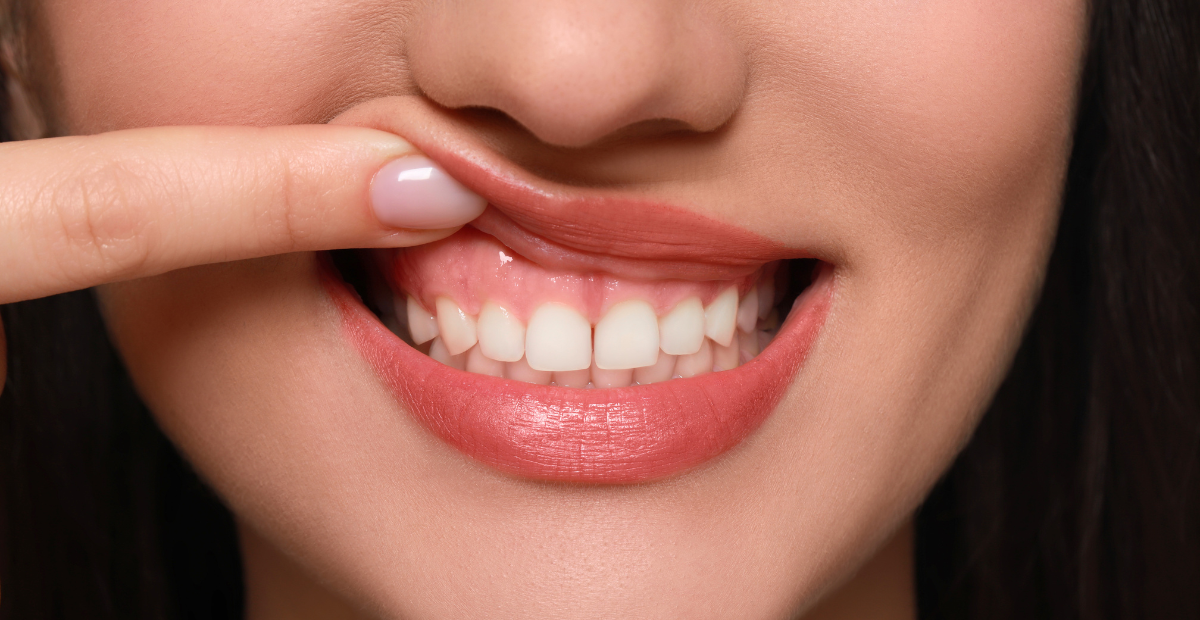Why are my teeth so sensitive?

Do you feel discomfort when sipping a hot drink or feel a sharp sting when breathing in cool air? If so, you might be experiencing tooth sensitivity – a common issue that tends to worsen during colder months. But what causes this sensitivity, and how can you manage it?
What is tooth sensitivity?
Tooth sensitivity is a sharp, sudden pain that occurs when your teeth react to certain triggers such as hot or cold foods, sweet treats, or even a breath of cool air. This typically occurs when the tooth’s protective outer layer, called enamel, becomes worn down or damaged, revealing the underlying layer known as dentine.
Dentine has tiny channels that lead directly to the nerves inside your tooth. Once exposed, even everyday sensations like a change in temperature or certain foods can cause discomfort.
What causes sensitive teeth?
Tooth sensitivity usually indicates that the enamel has worn down or gums have receded, leaving the inner layers of your teeth exposed. Several factors can contribute to sensitivity, including:
- Worn enamel: Brushing too hard or using a hard-bristled toothbrush can gradually wear down the enamel. When enamel becomes thin, even gentle brushing or flossing can cause pain.
- Gum recession: Gum disease or brushing aggressively can cause gums to pull back, exposing the tooth roots.
- Tooth grinding (bruxism): Clenching or grinding your teeth, especially when sleeping, can gradually damage enamel and increase sensitivity.
- Tooth erosion: Acidic foods, drinks (like citrus, soft drinks, kombucha), or even stomach acid from reflux or vomiting can wear away enamel and irritate sensitive areas.
- Tooth whitening: Overuse of over-the-counter whitening products can lead to increased sensitivity.
- Cracks or cavities: A fractured tooth or untreated cavity can expose the inner part of your tooth, leading to pain.
Tips to prevent tooth sensitivity
If you’re already experience sensitivity, these habits may help reduce discomfort:
- Use a soft-bristled toothbrush and brush gently twice a day.
- Switch to a toothpaste for sensitive teeth. These toothpastes either block the nerve response or build a barrier over sensitive areas.
- Wait at least 60 minutes after eating acidic foods or vomiting before brushing.
- Rinse with water after consuming acidic drinks like lemon water or sports drinks.
- Chew sugar-free gum to boost saliva production and neutralise acids.
- Maintain good oral hygiene to prevent gum disease.
- Avoid aggressive brushing or overusing whitening products.
During cooler months, breathing through your nose or using a scarf to cover your mouth outdoors can help reduce discomfort from cold air.
When to see a dentist and how they can help
If tooth sensitivity persists or starts affecting your daily life, it’s time to book a dental appointment. Sensitivity can sometimes signal a more serious problem like tooth decay, a cracked tooth, or a failed filling.
Your dentist can:
- Examine your teeth and gums thoroughly
- Use x-rays or thermal tests to pinpoint the source of pain
- Recommend desensitising treatments such as varnishes, resins, or fluoride applications
- Replace fractured fillings or treat underlying infections
Sensitive teeth shouldn’t be something you just put up with – especially when it interferes with your comfort, your smile, or even your eating habits. A dentist can identify what’s causing your tooth sensitivity and create a treatment plan to help relieve the discomfort.
Don’t let the cold weather keep you from smiling. If you’re struggling with sensitivity, the dental team at the Health Hub is here to help, offering professional advice, treatments and personalised care to get you back to enjoying the things you love—pain free.
To book a dental appointment at the Health Hub click here or call us on 1300 709 076.
This general information, while intended to be helpful, is not individual health advice. Always consult a healthcare professional before making health decisions. While the information is curated with care, its accuracy, completeness, or recency cannot be guaranteed.
